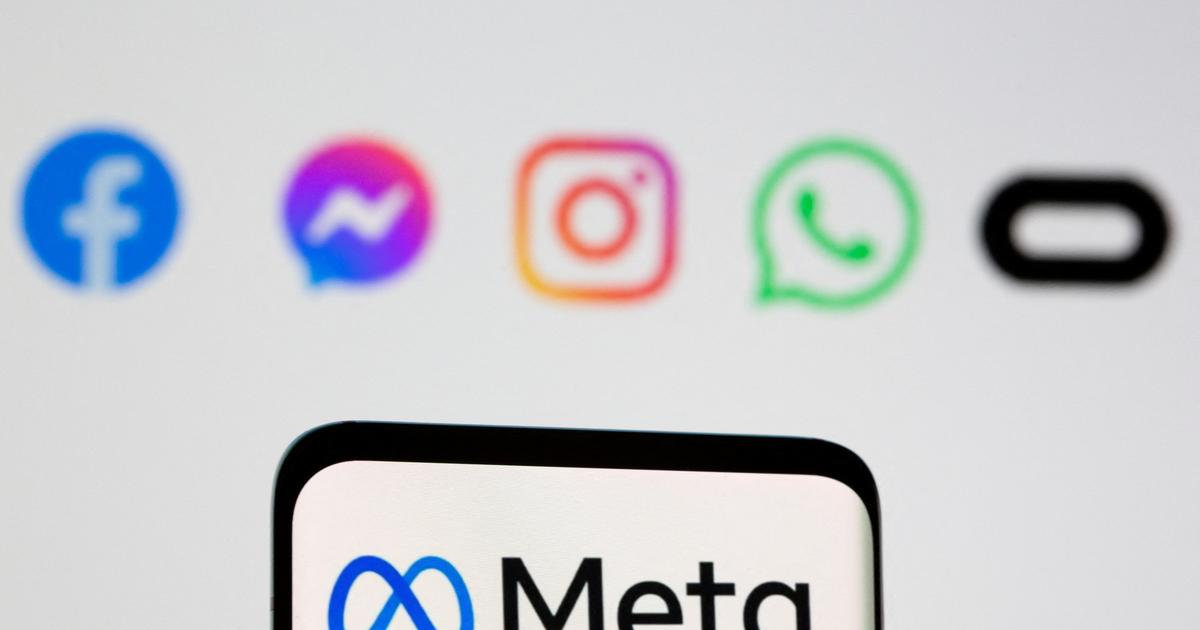Olivier Bomsel is Professor of Economics and Director of the Media and Brand Economics Chair at Mines ParisTech. He co-
wrote Le Nouveau Western with Rémi Devaux - Who can restrain the web giants?
, Ed. Le Cherche-Midi, March 2022.
LE FIGARO.- The integration of related activities is at the heart of the digital giants' model, you write. When Rockefeller reinvested the revenue from the railways in the purchase of pipelines, means of storage and distribution, Google and Facebook dominated the online advertising market which organizes the addressing of the consumer. Finally, the success of tech giants is based on the fact that they do not only offer a product but an ecosystem?
Olivier BOMSEL.-
We can see it like that indeed, although it is only an aspect.
As far as Rockefeller is concerned, it is rather a question of vertical integration around refining which constitutes its platform: it buys transport for crude producers and for buyers of refined then partially integrates in transport and distribution .
Rockefeller and its oil allies build a monopoly in refining and integrate it upstream and downstream into related activities.
An ecosystem is a set of activities that retains a consumer through the cross-utility of its products.
Amazon sells its logistics and infrastructure to its suppliers, Marketplace customers and others.
It's vertical integration.
The ecosystem effect is linked to Prime which, modulo a paid subscription, offers the group's customers all of its services at a reduced price.
Each new service from Amazon, including Internet access when its satellites are in place, increases the usefulness of Prime.
For Apple and Microsoft, it is the technical compatibility of software and services that creates this ecosystem effect.
For Facebook, it's Instagram, WhatsApp and free access to news.
Google has many side activities, but the ecosystem effect does not
not appear to the consumer.
No link between Google, Gmail or Waze for example.
On the other hand, all the activities adjacent to online research increase its profitability and allow the engine to remain the best on the market.
By treating the consumer like a sacred cow, the web giants have benefited from very lax regulations.
Olivier Bomsell
You draw a parallel between Rockefeller and the GAFAM. How are they comparable? Are these behemoths comparable? The GAFAMs have emerged in a much more interconnected world...
Rockefeller, but also JP Morgan and many others are at the origin of the large American trusts targeted by the Sherman Act, the first federal antitrust law.
At the time, the industry benefited from size effects driven by economies of scale.
With its large refinery, Rockefeller obtained strong discounts in transport which enabled it to buy out its close competitors.
But at the end of this concentration, it had to form an alliance with other majors within a holding company operating like a cartel.
Concentration through economies of scale ends up in collusion because large firms prefer to ally rather than fight each other.
Read alsoLa Semaine du FigaroVox – “Democracy controlled by the GAFA?”
In the digital era, size effects first play on network effects, ie the increase in the utility of services with the number of users.
Economies of scale then add up, so that whoever offers the most useful service benefits from the lowest costs.
This double effect is devastating.
No competitor can resist it.
This is how Google killed Yahoo!, how Facebook killed MySpace, how Amazon, thanks to its Marketplace, dominated e-commerce.
It is the winner-takes-all rule that makes these platforms superpowerful monopolies.
Apple and Microsoft are not monopolies, but ecosystems as described above.
They do not dominate any specific market.
Our book therefore deals with GAFs – Google, Amazon and Facebook – and not GAFAMs.
The other aspect of digital is that once these monopolies are established, their owners will integrate upstream and downstream where they compete with their customers.
This is where their predatory power comes into play.
With DoubleClick, Google, in monopoly on online research and the sponsored link, extends to the management of contextual banners.
Dominant in e-commerce, Amazon is expanding into the cloud by marketing its digital storage capacities.
Etc.
It is this logic of predation of adjacent markets that the antitrust legislation was initially aimed at.
In the 1980s, this objective was relegated to the name of consumer interest.
By treating the consumer like a sacred cow, the web giants have benefited from very lax regulations.
Monopoly rents are also used, through lobbying, to corrupt the institutions of democracy and the rule of law.
Olivier Bomsell
In liberal industrial societies, political power must ensure free access to property, to trade, to markets, to encourage the division of labor, innovation and growth. However, the GAF are doing everything to lock the market… Are they endangering the social order?
What is certain is that even if it concerns the economy and the functioning of markets, antitrust is a political institution.
The Sherman Act was applied in the United States only 20 years after its promulgation in response to the political context marked by the revolt of the economic sectors victims of the market power of the monopolies.
Digital monopolies have winners and losers.
The winners are often the consumers, pampered by the politicians, the losers are the industrialists of the dominated sectors.
But monopoly rents also serve, through lobbying, to corrupt the institutions of democracy and the rule of law.
This is the biggest threat.
Read also“Social networks must be responsible for the content they host!”
In addition, among the incentives given to digital, the derogatory status has been extended to liability law granted to telecoms and platforms, merchants and the media.
This host status makes the platforms irresponsible for the use made of their services: they can violate intellectual property, spread hatred and obscurantism, the platforms are not accountable.
Social media, which thus derogates from the publisher status imposed on historical media, deliberately sows trouble in order to increase its audience.
The societal irresponsibility of social media is a danger for the institutions of representative democracy.
Challenging Biden's election and storming the Capitol has been their catharsis.
The war is a reminder of the immense soft power conferred on America by the monopoly of online research, access to 85% of mobile phones via Android, or social media like Facebook and YouTube.
Olivier Bomsell
Amazon in particular, has generated such effects that it has become a global monopoly. Can we still go back?
The United States can decide to dismantle Amazon as it did systematically between 1905 and 1984 for many monopolies.
They could separate the retail business from the Marketplace and the cloud.
They could also do it for Google and Meta.
Before the Ukraine war, such takedowns were on the agenda of the Biden administration and its Lina Khan-led antitrust.
It was a pioneer in revising the philosophy of antitrust to the benefit of injured competitors.
But the war comes to remind us of the immense
soft power
that gives America the monopoly of online research, access to 85% of mobile phones via Android, or social media like Facebook and YouTube.
At a time when intelligence is a global weapon, the United States has no reason to clip its wings.
It is unlikely, in this new context, that the dismantling of neotrusts will return to the agenda.
By their power, are we heading towards a clash of sovereignty between nation-states and GAFs?
No.
States remain sovereign.
But some are more so than others.
The Chinese are cleaning up the tech sector in their own way.
They block Ali Baba's expansion and restrict the markets of Tencent and other online services.
The Americans probably have win-win data sharing agreements between the NSA and the trusts.
The Europeans pretend to want to regulate the GAFs, but they do not have the means to dismantle them.
Furthermore, by relieving Europe's dependence on Russian gas, the United States is getting Europe to reverse the GDPR which required the storage of European data in Europe.
New abuse of dominance complaints are emerging even in the European cloud market, where
Union complain about unfair competition from the American giants.
The war in Ukraine puts Europe in greater dependence vis-à-vis the United States which, in the current phase, can only strengthen the GAF.
Olivier Bomsel and Rémi Devaux, Le Nouveau Western, Ed. Le Cherche-Midi, March 24, 2022, 210 pages, €19 Le Cherche-Midi




/cloudfront-eu-central-1.images.arcpublishing.com/prisa/MUTRAEQZHBADNCTJ7OTNDGNVTA.jpg)



